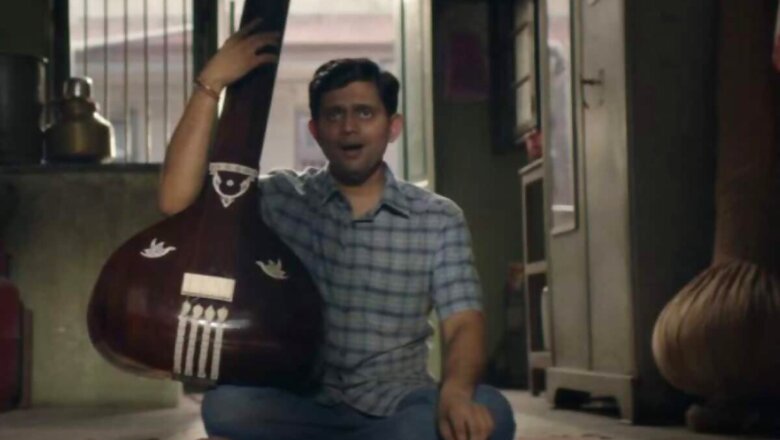
views
The Disciple
Director: Chaitanya Tamhane
Cast: Aditya Modak, Arun Dravid
There have been many movies pegged on music and teacher-student relationships, and one that caught my eye and attention in recent times was Rajiv Menon’s Sarvam Thaala Mayam about the enormous necessity for Carnatic Sangeet to be more inclusive, and not to be just confined to the upper echelons of India’s social order. Menon wove into this narrative a compelling story of how a young man from the lower strata fights to be included in this exclusive club, and wants to have as his guru a great vidhwan.
Chaitanya Tamhane’s The Disciple, which found a berth in 2020 Venice Competition — long, long after Mira Nair’s lovely Monsoon Wedding clinched the Golden Lion for Best Picture in 2001 – also focuses on the “guru-shishya parampara”. The film is filled with haunting Hindustani classical music, pure and unadulterated by contemporary fare, which can often be a lot of noise and din.
Tamhane, who directed The Court (also a Venice entry) some years ago, writes a story of how music, especially classical, requires one hundred per cent dedication, a mind free of distractions. The message here is bold and clear; there is no place for questions, and Hindustani classical teacher, know in the movie as Guruji (played by Arun Dravid with solemn determination and will to live in virtual penury), is a hard taskmaster. He does not flinch when he chastises a student even during a public performance, and his favourite shishya/student is Sharad Nerulkar (Aditya Modak). He tries to live by his master’s diktat, and does not even stray towards a young girl, also Guruji’s student, who takes an interest in him. This despite his mother and grandmother berating him for not having a proper job or getting married. He is so drunk in Guruji’s worldly wisdom and music that a chance criticism one evening by an acquaintance angers Sharad. He throws a glass of water at the critic!
The Disciple has an interesting theme all right, but it did not grip me, did not engage me in a way that modern cinema is capable of. There are so many long shots that they fail to bridge the viewers and the characters. We get annoyed because we thirst to be close to Sharad, and to see his emotions and his disappointments when he cannot live up expectations. And the pain of it all. It is a lazy camera that is happy staying afar and static, and sometimes the script wanders rather aimlessly, as when there is a competition for budding singers or when Sharad (after he himself becomes a teacher) ticks off the mother of a student when she wants her son to perform in public. “He is still learning to walk, and you want him to run”, he admonishes her.
The script certainly needed to be tighter. I could never understand why we needed those long motorbike rides on lonely Mumbai roads by Sharad with Maai’s (a classical legend) voiceover (by the late Sumitra Bhave) speaking about focus, dedication and the like. These rides appeared monotonous, and the time could have perhaps been used to take us deeper into Sharad’s life. We end up knowing so little about him.
Rating: 2/5
(Gautaman Bhaskaran is movie critic and author of a biography of Adoor Gopalakrishnan)
Read all the Latest News, Breaking News and Coronavirus News here. Follow us on Facebook, Twitter and Telegram.



















Comments
0 comment